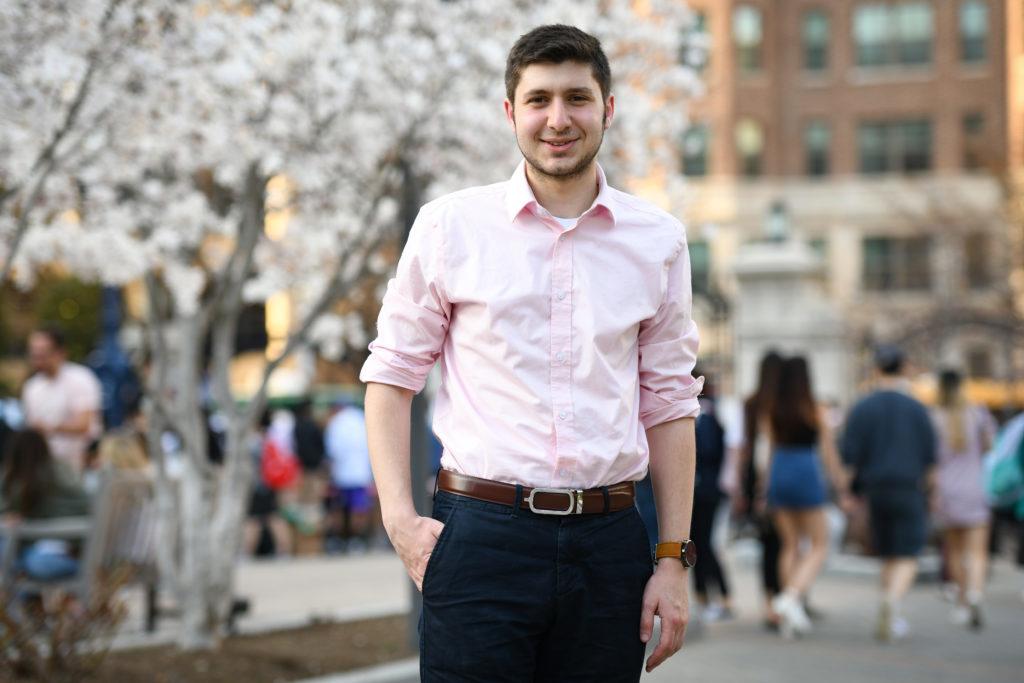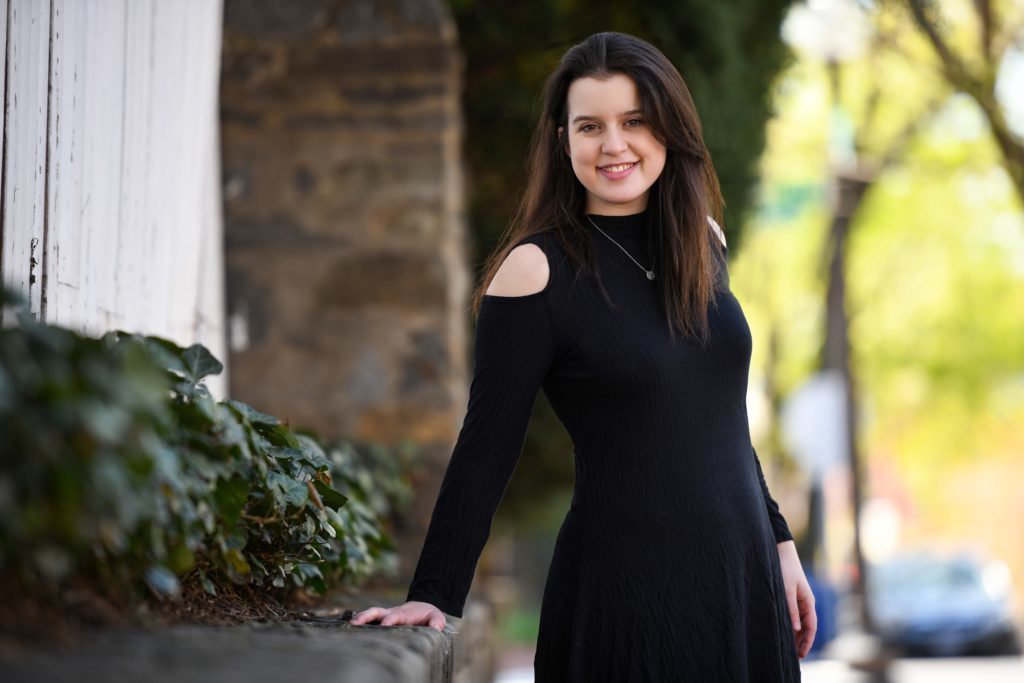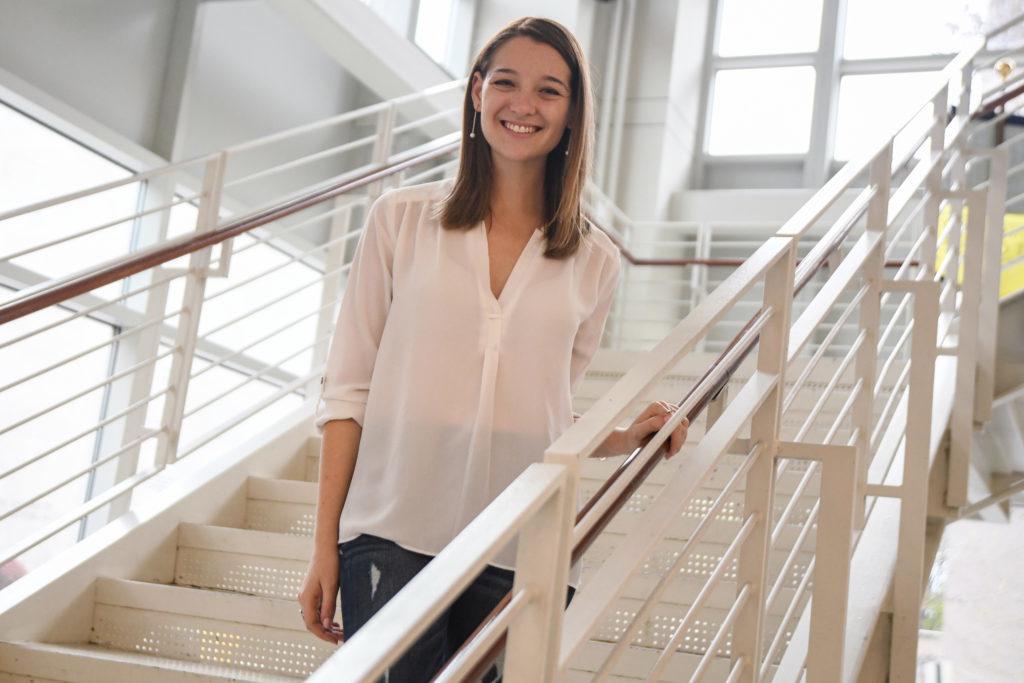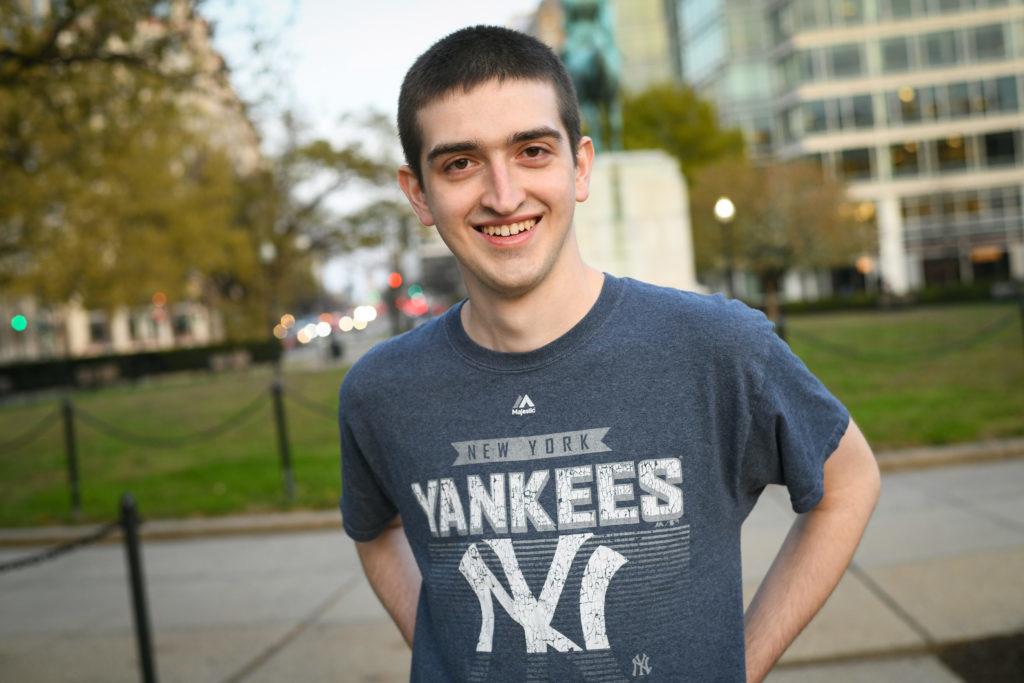Each year, graduating editors are given 30 final column inches – “30” was historically used to signify the end of a story – to reflect on their time at The Hatchet, published in the final issues of the year.
“How many people do you think showed up?”
Right after the March for Our Lives rally, as my sister and I regrouped with our community, that was one of the biggest questions people were asking. We had all just walked the asphalt of Pennsylvania Avenue, gotten a little sunburnt, shouted that “We are going to be a great generation!” and sang ‘Happy Birthday’ to one of the victims.
Yet what we talked about was the numbers.
It makes some sense. Numbers certainly seem to make a difference. They are facts. We can go to our representatives in Congress and say “X number of people signed onto this petition, joined this rally, were polled and believe this.” At work, we write reports and keep records with numbers so that we can be kept accountable.
In the newsroom, we use numbers to substantiate our stories, to back-up qualitative trends, to add specific information to a story that requires questioning.
As graphics editor, numbers have been my domain. What I’ve learned the most, though, is that numbers don’t speak for themselves. Just like words, the way we arrange them, emphasize them, interpret them, reflect upon them, changes their very meaning – even when they’re the exact same.
Take “We spent twelve hours working on the paper today.”
That could be a complaint, a point of pride in our dedication, an expression of being tired or hungry.
Building the graphics team and section, I’ve focused on determining how to turn numbers into stories, and it’s been a worthwhile struggle. My favorite moments have been in the newsroom arguing with news editors and dissecting stories, seeing how the quantitative analysis affects the real stories.
But there’s part of me that wonders what it would have looked like to take a different role on The Hatchet. There are stories that are left untold, voices unamplified, communities quietly hidden that each deserve to be revealed.
What I’ve learned, though, is that the numbers and stories are never separate. There’s a reason (or several) that it takes so long to produce a paper every week. There are stories for why each person showed up for the March for Our Lives.
That’s what I’ve learned the most as part of Hatchet staff: The news isn’t just delivering facts. It’s telling the stories of people’s lives.
I’m grateful that the Hatchet gave me the opportunity to tell some of those stories.
At the end of one’s tenure, it’s important to recognize the people who helped you through it, shared a memory, shared a laugh. There’s a lot of people, and I know I’m not able to cover everyone out there, so to everyone, a sincere, deep thank you for helping to create the community that is The Hatchet. We do amazing work for our campus, but we also do it for ourselves, just getting through a Sunday or a Wednesday to put something together that looks (mostly) complete. You’re all very special people.
For the sake of brevity, I’m offering a few specific thank yous to people, with no particular sense or order or obligation, but a simple desire to share a memory. These are not the most important things you did, just the one I wanted to reflect on with you, short and to the point.
I also write against an early deadline, so I haven’t had time to find a memory for everyone. If you aren’t on this list, it’s a matter of time not fondness. Thank you for being there and being a family.
Thank you to:
Brandon Lee for that crazy conspiracy we discussed that first night I was in the townhouse.
Emily Robinson for dragging me to get involved with The Hatchet when you found out I did yearbook.
Anna Skillings for your sarcasm.
Jacqueline Thompson for sharing my love of data and inviting me into the news corner.
Sam LaFrance for trusting me with the graphics and basically giving me the position.
Zach Slotkin for always being flexible, no matter what I threw at you.
Lillianna Byington for being patient with me.
Ellie Smith for bearing with me as I learned how to do my job.
Cayla Harris for being a friend despite the stories I made you stress over, and going crazy with me.
Justine Coleman for always being a smiling face on the third floor, and then bringing that happiness to the second.
Elise Zaidi for that horribly late conversation we had after elections.
Leah Potter for our shared glances across the newsroom about some of the toughest issues we cover.
Emily Recko for eagerly taking up the reigns of Graphics and letting me feel comfortable stepping back.
Tyler Loveless for commiserating about our classes.
Emma Tyrrell for appreciating my dancing.
Melissa Holzberg for making sure I was safe after walking home from prom.
Sam Hardgrove for being the loving and annoying older brother.
Melissa Schapiro always being a sounding board.
Ethan Stoler for sometimes being the responsible one too.
Liz Provencher for thinking I’m interesting enough to interview.
Also thank you to:
The GW Writing Center for setting the bar high for how a workplace can feel like a family. Maybe Aaron Sorkin should write about us.
GW Hillel and the JSA for being my community during the quiet weekends.
Speakers of the House: The GW Spoken Word Collective, for giving me a venue to say things I’ve never said aloud before.
A shout-out to GW Libraries for giving me books and a career path.
Ben, Aliza and Reena for making breaks and vacations and Whatsapps happy and restful.
Eema and Abba for giving me all the support I needed to pay for and get through this bull-ride of a college experience.
-30-





